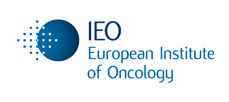预约演示
更新于:2025-11-29
DDP-38003
更新于:2025-11-29
概要
基本信息
非在研机构- |
权益机构- |
最高研发阶段临床前 |
首次获批日期- |
最高研发阶段(中国)- |
特殊审评- |
结构/序列
分子式C21H26N4O |
InChIKeySSWIQIUOBLUKHT-VQTJNVASSA-N |
CAS号1831167-97-5 |
关联
100 项与 DDP-38003 相关的临床结果
登录后查看更多信息
100 项与 DDP-38003 相关的转化医学
登录后查看更多信息
100 项与 DDP-38003 相关的专利(医药)
登录后查看更多信息
6
项与 DDP-38003 相关的文献(医药)2024-02-14·Science translational medicine1区 · 医学
Multispecies transcriptomics identifies SIKE as a MAPK repressor that prevents NASH progression
1区 · 医学
Article
作者: Hu, Yufeng ; Huang, Lingli ; Tian, Rui-Feng ; Tian, Han ; Qu, Weiyi ; Tian, Song ; Han, Cuijuan ; Cai, Zhiwei ; Zhang, Xin ; Bai, Lan ; She, Zhi-Gang ; Hu, Fengjiao ; Wang, Zhenya ; Cheng, Xu ; Yang, Ling ; Wan, Juan ; Zhou, Junjie ; Li, Hongliang ; Zhang, Peng ; Ji, Yan-Xiao ; Cai, Jingjing ; Fu, Jiajun ; Huang, Yong-Ping ; Yang, Hailong ; Zhang, Xiao-Jing ; Wang, Yibin ; Jiang, Jingwei ; Ma, Tengfei
Nonalcoholic fatty liver (NAFL) remains relatively benign, but high-risk to end-stage liver diseases become highly prevalent when it progresses into nonalcoholic steatohepatitis (NASH). Our current understanding of the development of NAFL to NASH remains insufficient. In this study, we revealed MAP kinase (MAPK) activation as the most notable molecular signature associated with NASH progression across multiple species. Furthermore, we identified suppressor of IKKε (
SIKE
) as a conserved and potent negative controller of MAPK activation. Hepatocyte-specific overexpression of
Sike
prevented NASH progression in diet- and toxin-induced mouse NASH models. Mechanistically, SIKE directly interacted with TGF-β–activated kinase 1 (TAK1) and TAK1-binding protein 2 (TAB2) to interrupt their binding and subsequent TAK1-MAPK signaling activation. We found that indobufen markedly up-regulated
SIKE
expression and effectively improved NASH features in mice and macaques. These findings identify SIKE as a MAPK suppressor that prevents NASH progression and provide proof-of-concept evidence for targeting the SIKE-TAK1 axis as a potential NASH therapy.
2023-12-19·Science signaling
Inhibition of the lysine demethylase LSD1 modulates the balance between inflammatory and antiviral responses against coronaviruses
Article
作者: Bonetti, Emanuele ; Meroni, Giuseppe ; Ravasio, Roberto ; Fedele, Giorgio ; Trastulli, Deborah ; Santoro, Fabio ; Manganaro, Lara ; Pallavicini, Isabella ; Buttinelli, Gabriele ; Monzani, Silvia ; Gentile, Claudia ; Iannacone, Matteo ; Schiavoni, Ilaria ; Gavilán, Elena ; Duso, Bruno A ; Massa, Paul E ; Pallavi, Rani ; Romanenghi, Mauro ; Fumagalli, Valeria ; Pasqualato, Sebastiano ; Rodighiero, Simona ; Mazzarella, Luca ; de Francesco, Raffaele ; Pelicci, Pier Giuseppe ; Stefanelli, Paola ; Leonardi, Tommaso ; Minucci, Saverio ; Fossati, Gianluca ; Di Martino, Angela ; Steinkuhler, Christian
Innate immune responses to coronavirus infections are highly cell specific. Tissue-resident macrophages, which are infected by severe acute respiratory syndrome coronavirus 2 (SARS-CoV-2) in patients but are inconsistently infected in vitro, exert critical but conflicting effects by secreting both antiviral type I interferons (IFNs) and tissue-damaging inflammatory cytokines. Steroids, the only class of host-targeting drugs approved for the treatment of coronavirus disease 2019 (COVID-19), indiscriminately suppress both responses, possibly impairing viral clearance. Here, we established in vitro cell culture systems that enabled us to separately investigate the cell-intrinsic and cell-extrinsic proinflammatory and antiviral activities of mouse macrophages infected with the prototypical murine coronavirus MHV-A59. We showed that the nuclear factor κB–dependent inflammatory response to viral infection was selectively inhibited by loss of the lysine demethylase LSD1, which was previously implicated in innate immune responses to cancer, with negligible effects on the antiviral IFN response. LSD1 ablation also enhanced an IFN-independent antiviral response, blocking viral egress through the lysosomal pathway. The macrophage-intrinsic antiviral and anti-inflammatory activity of Lsd1 inhibition was confirmed in vitro and in a humanized mouse model of SARS-CoV-2 infection. These results suggest that LSD1 controls innate immune responses against coronaviruses at multiple levels and provide a mechanistic rationale for potentially repurposing LSD1 inhibitors for COVID-19 treatment.
2022-03-10·Journal of medicinal chemistry1区 · 医学
Structure–Activity Relationship Study of Indolin-5-yl-cyclopropanamine Derivatives as Selective Lysine Specific Demethylase 1 (LSD1) Inhibitors
1区 · 医学
Article
作者: Sheng, Li ; Zhou, Yubo ; Li, Jia ; Su, Mingbo ; Zhu, Wei ; Wang, Jiang ; Kan, Weijuan ; Li, Chunpu ; Ge, Tianpeng ; Wang, Shuni ; Xu, Gaoya ; Ye, Yunfei ; Liu, Hong ; Gao, Feng
LSD1 is identified as an essential drug target, which is closely correlated to the development of several tumor types. In this work, on the basis of comprehensive analysis of the binding site of LSD1 and other FAD-dependent enzymes, a novel series of potent and selective LSD1 inhibitors were designed by incorporation of privileged indoline scaffold strategies. Representative compound 7e (LSD1; IC50 = 24.43 nM, selectivity over LSD2 and MAOs of >200- and 4000-fold) possessed selective antiproliferative activities against MV-4-11 cell lines. Further study indicates that 7e could activate CD86 expression (EC50 = 470 nM) and induce differentiation of AML cell lines. More importantly, compound 7e demonstrated an acceptable oral PK profile and good in vivo antitumor efficacy with a T/C value of 30.89% in an MV-4-11 xenograft mouse model. Collectively, this work provides a promising lead compound for the development of novel LSD1 inhibitors for the treatment of AML.
100 项与 DDP-38003 相关的药物交易
登录后查看更多信息
研发状态
10 条进展最快的记录, 后查看更多信息
登录
| 适应症 | 最高研发状态 | 国家/地区 | 公司 | 日期 |
|---|---|---|---|---|
| 肿瘤 | 临床前 | 意大利 | 2015-12-24 |
登录后查看更多信息
临床结果
临床结果
适应症
分期
评价
查看全部结果
| 研究 | 分期 | 人群特征 | 评价人数 | 分组 | 结果 | 评价 | 发布日期 |
|---|
No Data | |||||||
登录后查看更多信息
转化医学
使用我们的转化医学数据加速您的研究。
登录
或

药物交易
使用我们的药物交易数据加速您的研究。
登录
或

核心专利
使用我们的核心专利数据促进您的研究。
登录
或

临床分析
紧跟全球注册中心的最新临床试验。
登录
或

批准
利用最新的监管批准信息加速您的研究。
登录
或

特殊审评
只需点击几下即可了解关键药物信息。
登录
或

生物医药百科问答
全新生物医药AI Agent 覆盖科研全链路,让突破性发现快人一步
立即开始免费试用!
智慧芽新药情报库是智慧芽专为生命科学人士构建的基于AI的创新药情报平台,助您全方位提升您的研发与决策效率。
立即开始数据试用!
智慧芽新药库数据也通过智慧芽数据服务平台,以API或者数据包形式对外开放,助您更加充分利用智慧芽新药情报信息。
生物序列数据库
生物药研发创新
免费使用
化学结构数据库
小分子化药研发创新
免费使用
